-
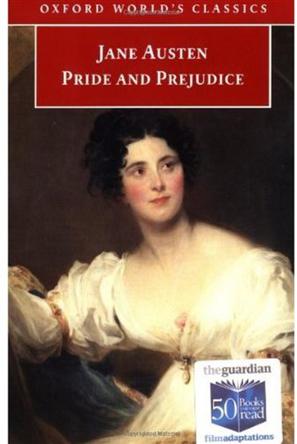
Pride and Prejudice
Pride and Prejudice has delighted generations of readers with its unforgettable cast of characters, carefully choreographed plot, and a hugely entertaining view of the world and its absurdities. -
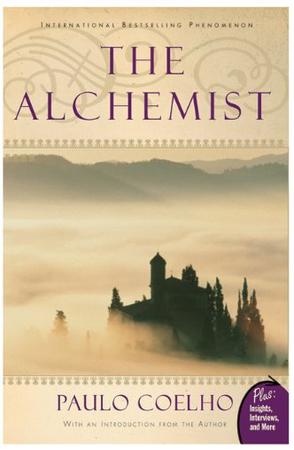
The Alchemist
Every few decades a book is published that changes the lives of its readers forever. The Alchemist is such a book. With over a million and a half copies sold around the world, The Alchemist has already established itself as a modern classic, universally admired. Paulo Coelho's charming fable, now available in English for the first time, will enchant and inspire an even wider audience of readers for generations to come. The Alchemist is the magical story of Santiago, an Andalusian shepherd boy who yearns to travel in search of a worldly treasure as extravagant as any ever found. From his home in Spain he journeys to the markets of Tangiers and across the Egyptian desert to a fateful encounter with the alchemist. The story of the treasures Santiago finds along the way teaches us, as only a few stories have done, about the essential wisdom of listening to our hearts, learning to read the omens strewn along life's path, and, above all, following our dreams. -
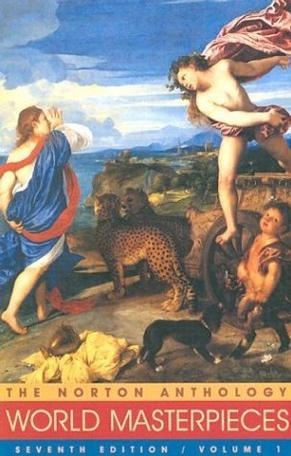
Norton Anthology of World Masterpieces
Offering a splendid collection of literary masterpieces in the best available translations, The Norton Anthology of World Masterpieces is a literal library of Western literature in two portable volumes. Most major works, from Homer's Odyssey to Chinua Achebe's Things Fall Apart, are offered complete or in substantial, readable excerpts. New authors and works abound, including pieces by Plautus, Lucian, Ariosto, de Vega, Shakespeare, Joyce, O'Connor, Munro, and Silko, and new sections of Medieval lyrics and tales, Romantic poetry in translation, and Dada-Surrealist poetry. Informative period introductions and author headnotes guide readers through the cultural and historical contexts surrounding the literature. -
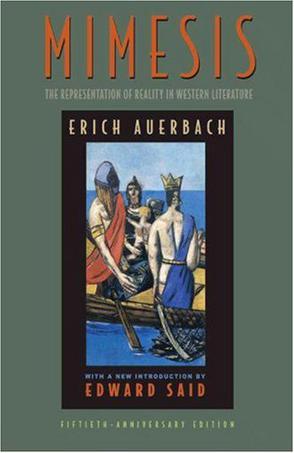
Mimesis
A half-century after its translation into English, Erich Auerbach's "Mimesis" still stands as a monumental achievement in literary criticism. A brilliant display of erudition, wit, and wisdom, his exploration of how great European writers from Homer to Virginia Woolf depicted reality has taught generations how to read Western literature. This new expanded edition includes a substantial essay in introduction by Edward Said as well as an essay, never before translated into English, in which Auerbach responds to his critics. A German Jew, Auerbach was forced out of his professorship at the University of Marburg in 1935. He left for Turkey, where he taught at the state university in Istanbul. There, he wrote "Mimesis", publishing it in German after the end of the war. Displaced as he was, Auerbach produced a work of great erudition that contains no footnotes, basing his arguments instead on searching, illuminating readings of key passages from his primary texts. His aim was to show how, from antiquity to the twentieth century, literature progressed toward ever more naturalistic and democratic forms of representation. This essentially optimistic view of European history now appears as a defensive - and impassioned - response to the inhumanity he saw in the Third Reich. Ranging over works in Greek, Latin, Spanish, French, Italian, German, and English, Auerbach used his remarkable skills in philology and comparative literature to refute any narrow form of nationalism or chauvinism, in his own day and ours. For many readers, both inside and outside the academy, "Mimesis" is among the finest works of literary criticism ever written. -
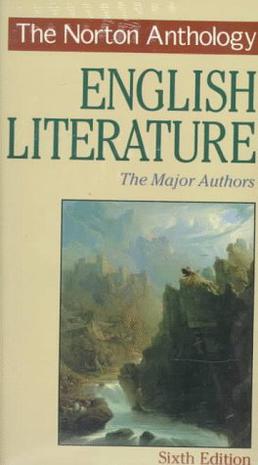
THE NORTON ANTHOLOGY OF ENGLISH LITERATURE
Book Description The Norton Anthology of English Literature has been thoroughly re- shaped and expanded to take account of the needs of students and their professors at the dawn of the third millennium. The seventh edition's thoroughly revised text incorporates recent scholarly developments while retaining the elements that have made the book a classic. New features include a broader representation of women writers of all historical periods such as Marie de France, Frances Burney, Charlotte Smith, Mary Robinson, Elizabeth Gaskell and Eavan Boland; a richer treatment of post-Colonial writers such as Jean Rhys, Chinua Achebe, V.S. Naipaul, Anita Desai, Les Murray, Salman Rushdie, J.M. Coetzee and Paul Muldoon; and a new set of cultural and thematic "Issues" such as "The Literature of the Sacred", "The Science of Self and World", "Slavery and Freedom" "Revolution, Rights and Liberation" and "The Rise and Fall of Empire". The period introductions, author headnotes, annotations and bibliographies have been thoroughly revised and many have been completely rewritten for the new edition. Capping it all is Seamus Heaney's wonderful new verse translation of Beowulf which has been eagerly awaited. Synopsis The Sixth Edition of The Norton Anthology of English Literature continues to be the indispensable anthology. Like its predecessors, the Sixth Edition offers the best in English literature from the classic to the contemporary in a readable, teachable format. More selections by women and twentieth-century writers, a richer offering of contextual writings, apparatus fully revised to reflect today's scholarship, and a new larger trim size make the Sixth Edition the choice for breadth, depth, and quality. The Editors: M. H. Abrams, General Editor, Emeritus, Cornell University E. Talbot Donaldson, Late of Indiana University Alfred David, Emeritus, Indiana University Hallett Smith, Formerly with The Huntington Library Barbara K. Lewalski, Harvard University Robert M. Adams, Late of University of California, Los Angeles George M. Logan, Queen's University Samuel Holt Monk, Late of the University of Minnesota Lawrence Lipking, Northwestern University Jack Stillinger, University of Illinois George H. Ford, Late of the University of Rochester Carol T. Christ, University of California at Berkeley David Daiches, Emeritus, University of Sussex Jon Stallworthy, Oxford University Book Dimension length: (cm)23.3 width:(cm)14.1 -
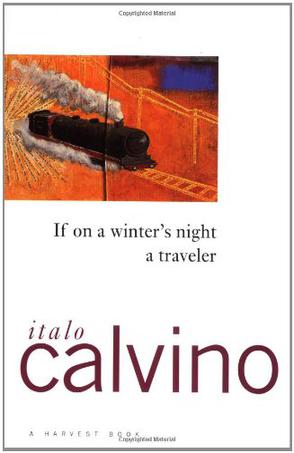
If on a Winter's Night a Traveler
Italo Calvino imagines a novel capable of endless mutations in this intricately crafted story about writing and readers. If on a Winter's Night a Traveler turns out to be not one novel but ten, each with a different plot, style, ambience, and author, and each interrupted at a moment of suspense. Together they form a labyrinth of literatures, known and unknown, alive and extinct, through which two readers, a male and a female, pursue both the story lines that intrigue them and one another.